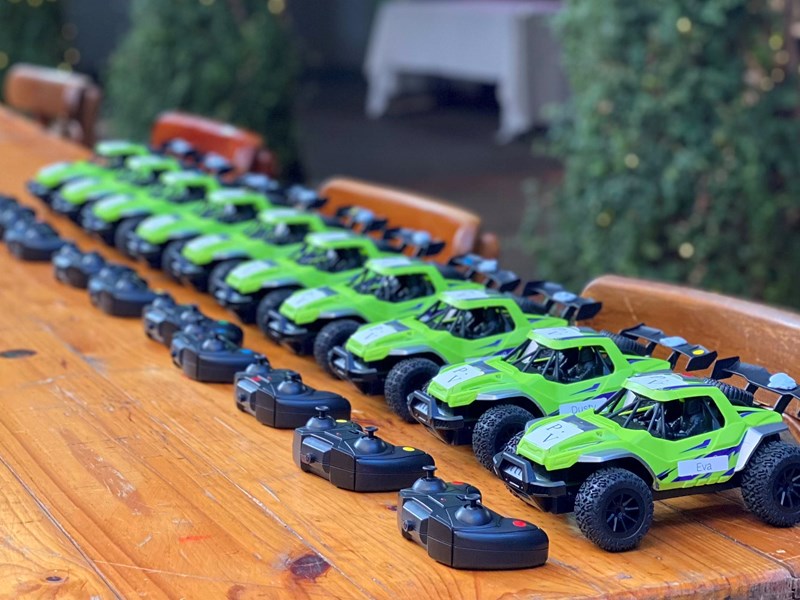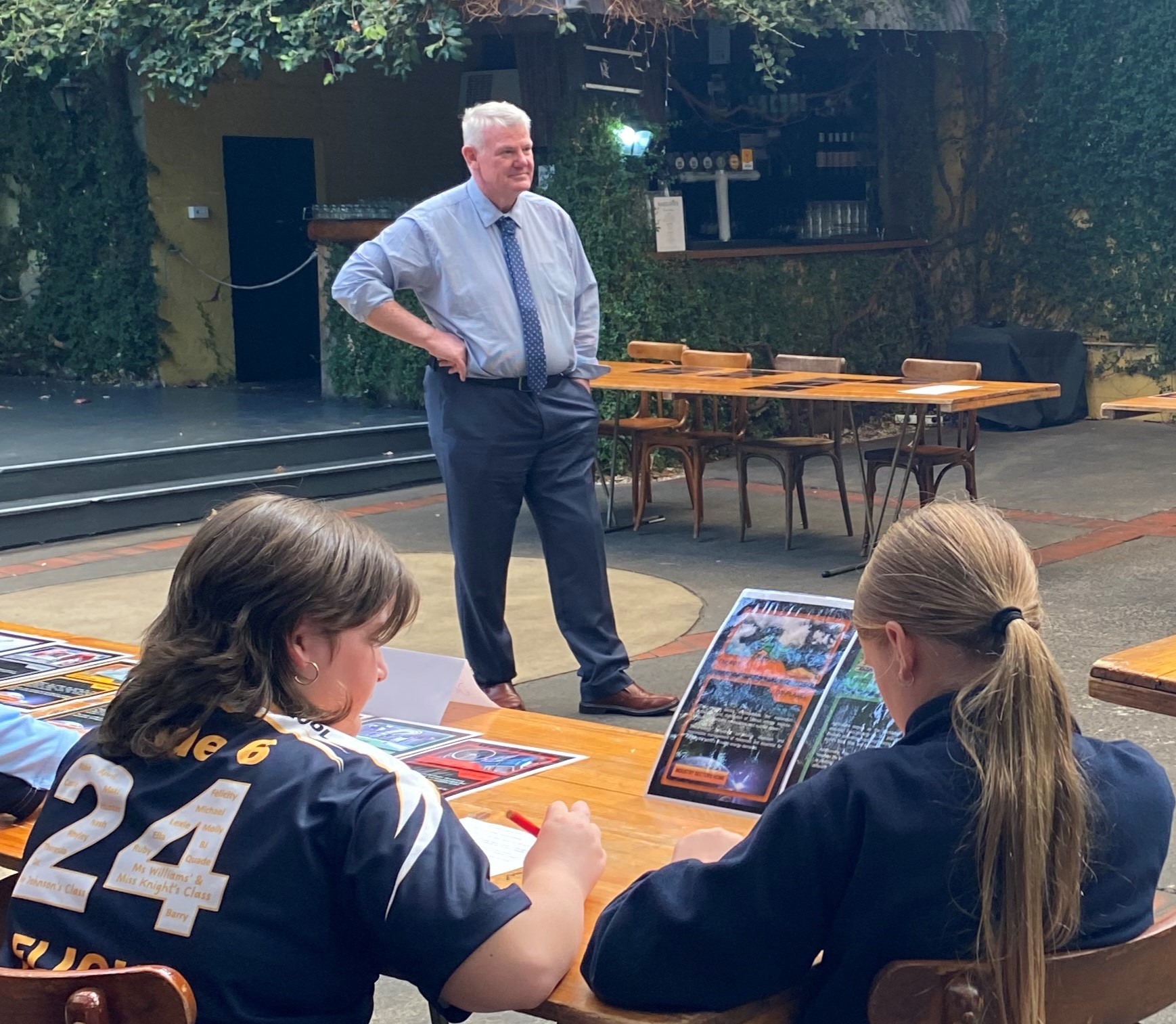Regional sitting wrap-up
21 May 2024

In mid-April, to coincide with the Legislative Council's regional sitting, the Community Engagement education team ventured to Northern Victoria to conduct a series of workshops for schools in the Echuca area.
Students in grades 3-6 from Girgarre Primary School, Australian Christian College Echuca, Nathalia Primary School and Rochester Primary School participated in our Mission Control program.
The first part of Mission Control mimics the process of passing a bill. Students form hypothetical parties. Each party has a series of priority industries, but to spice things up, the students also have electorates to represent with different industry priorities. The parties need to decide, from a list of 12 recommended industries, which two they would leave behind and which industries they really wanted to fight for. Once each party had made their decisions, the students went through the process of passing a bill through both Houses.
With little agreement in the Upper House, a motion was proposed to enter the Committee of the Whole stage. Thankfully, amendments were made and the bill passed. We were lucky enough to have the President of the Legislative Council join us for one of our sessions, and he did an excellent job at managing the sometimes-heated debate and maintaining order in the chamber.
The results of the top priority industries varied between the school groups, but more often than not, 'law and policy' and 'entertainment and recreation' were the two industries left behind. Students justified their choices by sharing that 'law and policy' would be an easy enough industry to establish once they were on the new planet (that's if the new planet needed rules), and that entertainment and recreation was unnecessary as they were there to work afterall.

With the 10 industries chosen, it was time for the design challenge. Each student was given an industry from the list, and had to use some very durable, and incredibly 'high-tech' Mars Rovers (with a striking resemblence to remote control cars) to share knowledge and resources between the industry hubs. Students found it tricky to strike the balance between successfully maneuvering the rovers across Mars or crashing them into each other with potentially disastrous consequences. As part of their design challenges, students built Mars classrooms for the education industry, a 3D printer for the technology industry, cranes for design and construction, a community meeting place for entertainment and recreation (on the one occassion it was included), and a robot for the information and communication industry.
Mission Control was originally designed for secondary students, so we made some easy adjustments to the program to use it in the lower years, including streamlining the amount of information they had and providing more scaffolding for their decision-making and presentations of their arguments. Further adjustments could include simplifying the language, changing the amount of structure in the debate (more or less depending on the students) or having students only select their top two and bottom two industries to take to Mars.
Our Teach and Learn page has more information on Mission Control, including instructions on how to access the program.
Students from Australian Christian College Echuca, Nathalia and Rochester Primary School also participated in a leadership workshop, where they explored important qualities of leaders, how they represent others and how decisions are made as part of a group. To explore decision making, students planned a camp for their respective schools to go on, considering a range of activities that would cater for the range of student interests. There was a resounding vote for dinosaur nuggets and gaga pits to be included, with surfing and visiting a dairy farm to milk cows also ranking quite highly as prefered activities.
If you're looking at exploring leadership skills either in your school or in your classroom, take a look at our Leadership and advocacy video series and Engaging perspectives cards.